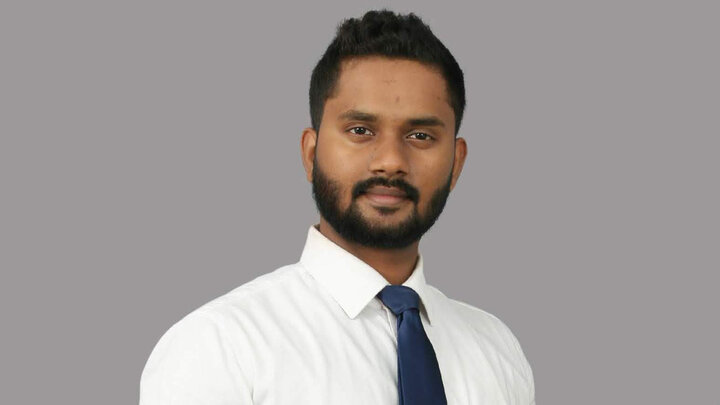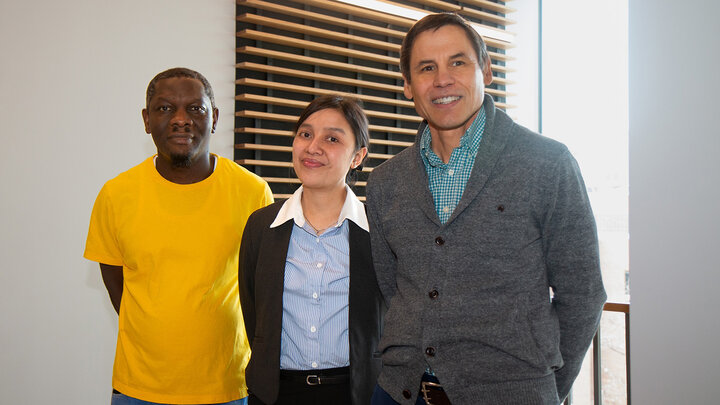Rahul Krishnamurthy, a human sciences Ph.D. student in the Department of Special Education and Communication Disorders , was selected to receive a Ph.D. scholarship from the Council of Academic Programs in Communication Sciences and Disorders (CAPCSD).
CAPCSD awards up to eight scholarships of $20,000 each annually to students pursuing a Ph.D. and who are focused on an academic career in communication sciences and disorders.
“The CAPCSD Ph.D. scholarship is prestigious and quite competitive,” Krishnamurthy said. “It was humbling to be chosen as a recipient of this scholarship, and I feel extremely grateful and honored. Receiving the scholarship was a confirmation of the effort and commitment that I have put into my academic goals, and I was thrilled about the possibilities that it would provide me to continue my research and make meaningful contributions to the field. I extend my sincere gratitude to my advisor, Dr. Dietsch, and the department for their unwavering support throughout the application process.”
Krishnamurthy, a native of Bangalore, India, is finishing the second year of his Ph.D. program at the university. His path to Nebraska began as an undergraduate intern at an acute care research facility, assisting researchers on projects related to speech and swallowing in individuals with stroke.
“Through this experience, I became fascinated with the idea of being able to help people communicate and swallow, and make a positive impact,” Krishnamurthy said. “My experiences at the acute care research facility helped me realize that I wanted to pursue a career in healthcare and specifically focus on communication sciences and disorders.”
In his current doctoral training, Krishnamurthy is building upon speech and swallowing therapeutics, exercise physiology, and molecular biochemistry.
“I must acknowledge my two co-advisors, Dr. Satish Kumar Natarajan and Dr. Terry Housh, who have been instrumental in helping me build the necessary skill sets in molecular analysis and exercise physiology, respectively,” Krishnamurthy said. “As a part of my doctoral dissertation, I plan to investigate the molecular and functional changes associated with the neuroplastic effects of a four-week expiratory muscle strength training (EMST) regimen on the speech and swallowing systems.”
As he continues the work toward completing his Ph.D., Krishnamurthy also knows he is working toward his future in the field of communication sciences and disorders.
“I have a clear vision of the future role that I want to play. I envision myself as a “researcher-instructor,” combining my passion for research with my love for teaching and mentoring students. Academically, my dream is to establish an interdisciplinary program that focuses on communication and swallowing neurosciences. I believe that this program will be instrumental in advancing our understanding of communication and swallowing disorders, and in training the next generation of researchers and clinicians in this field.
“My long-term research goal is to develop personalized exercise-based therapies that can effectively treat aging and disease-induced changes in the voice and swallowing systems. I am particularly interested in exploring the molecular, physiological, and neuroimaging aspects of these changes, as I believe that a multi-faceted approach will yield the best results. By understanding the underlying mechanisms of these changes, I hope to create interventions that can be tailored to each patient’s specific needs, resulting in improved outcomes and quality of life.”
Krishnamurthy is a Ph.D. student and research assistant in associate professor Angela Dietsch’s Sensorimotor Integration for Swallowing and Communication (SISC) Lab at the Barkley Memorial Center on UNL’s East Campus.




